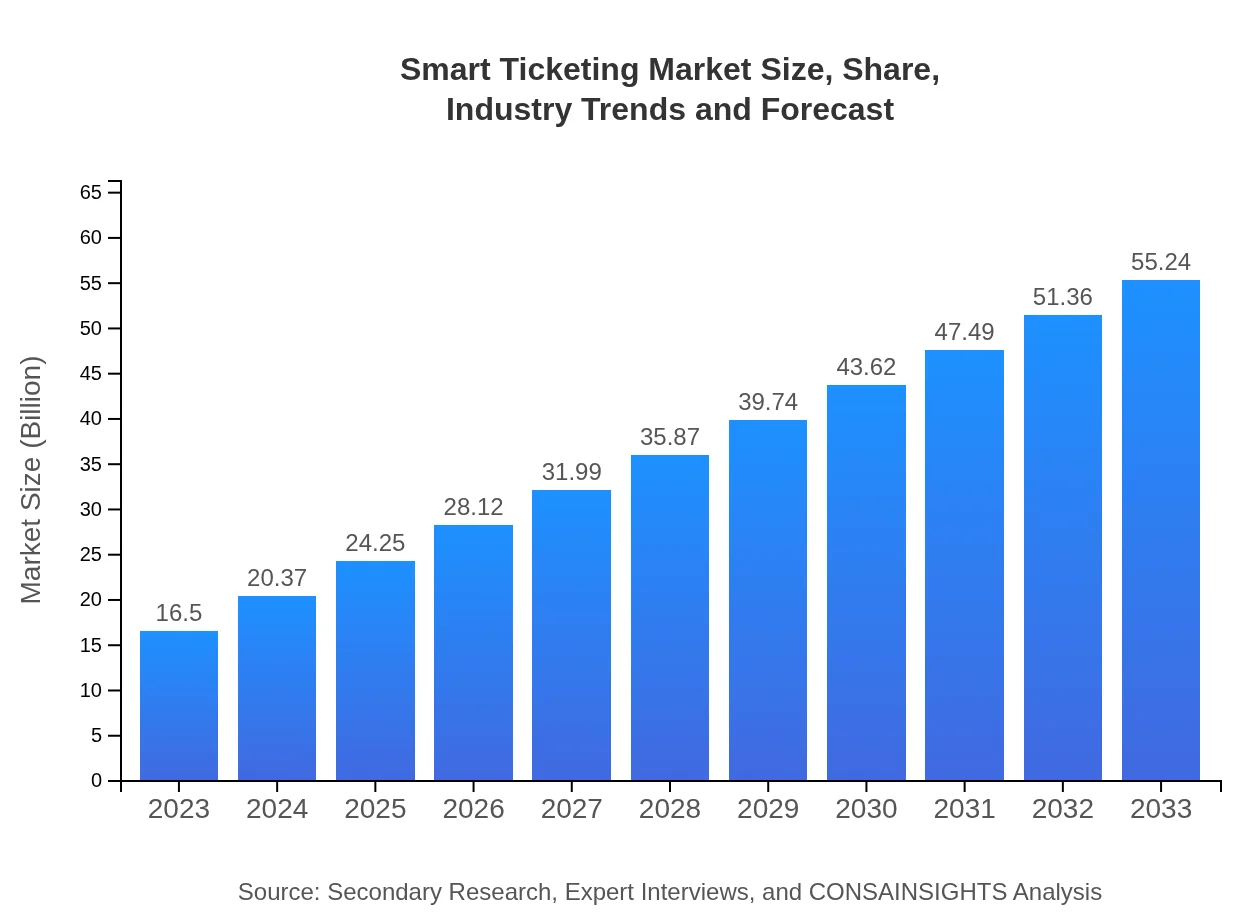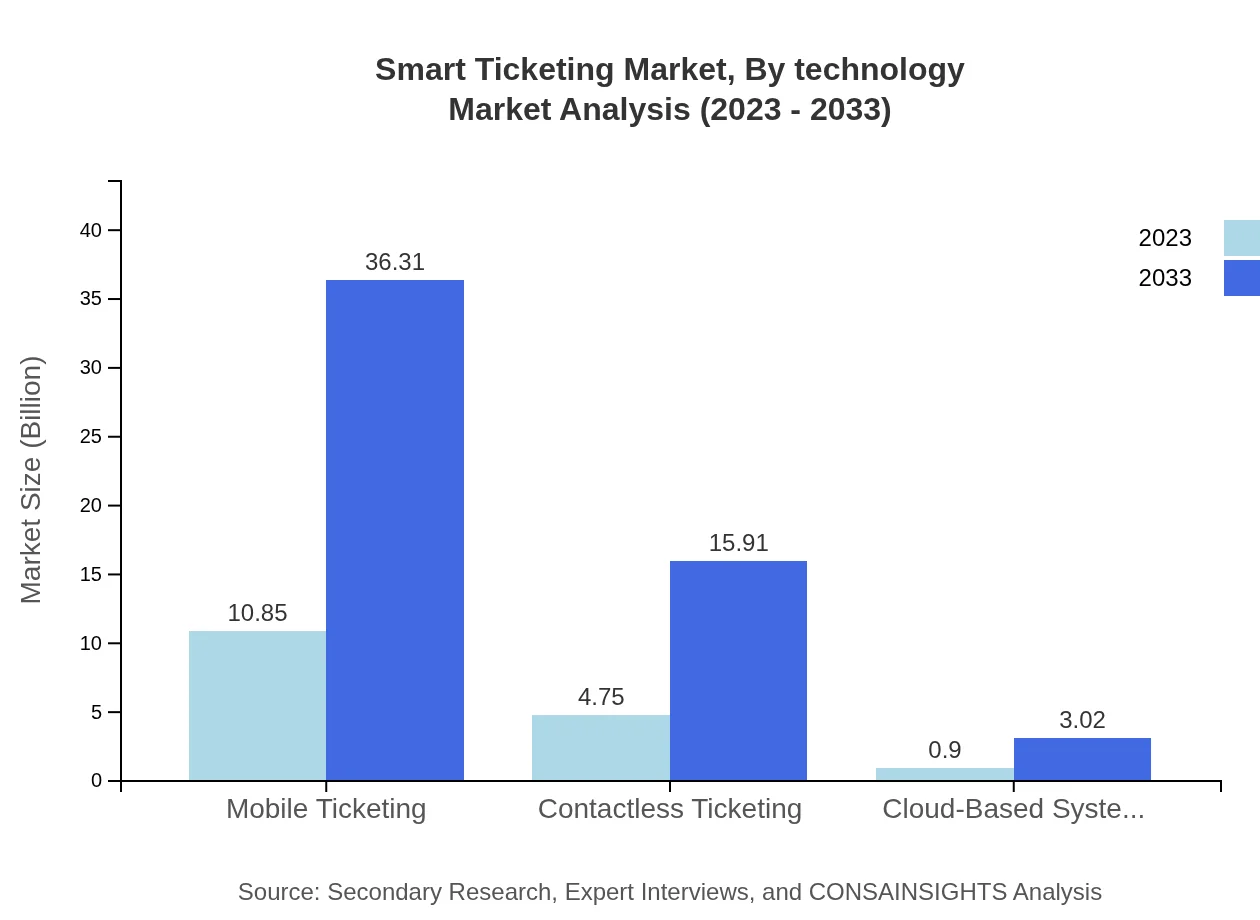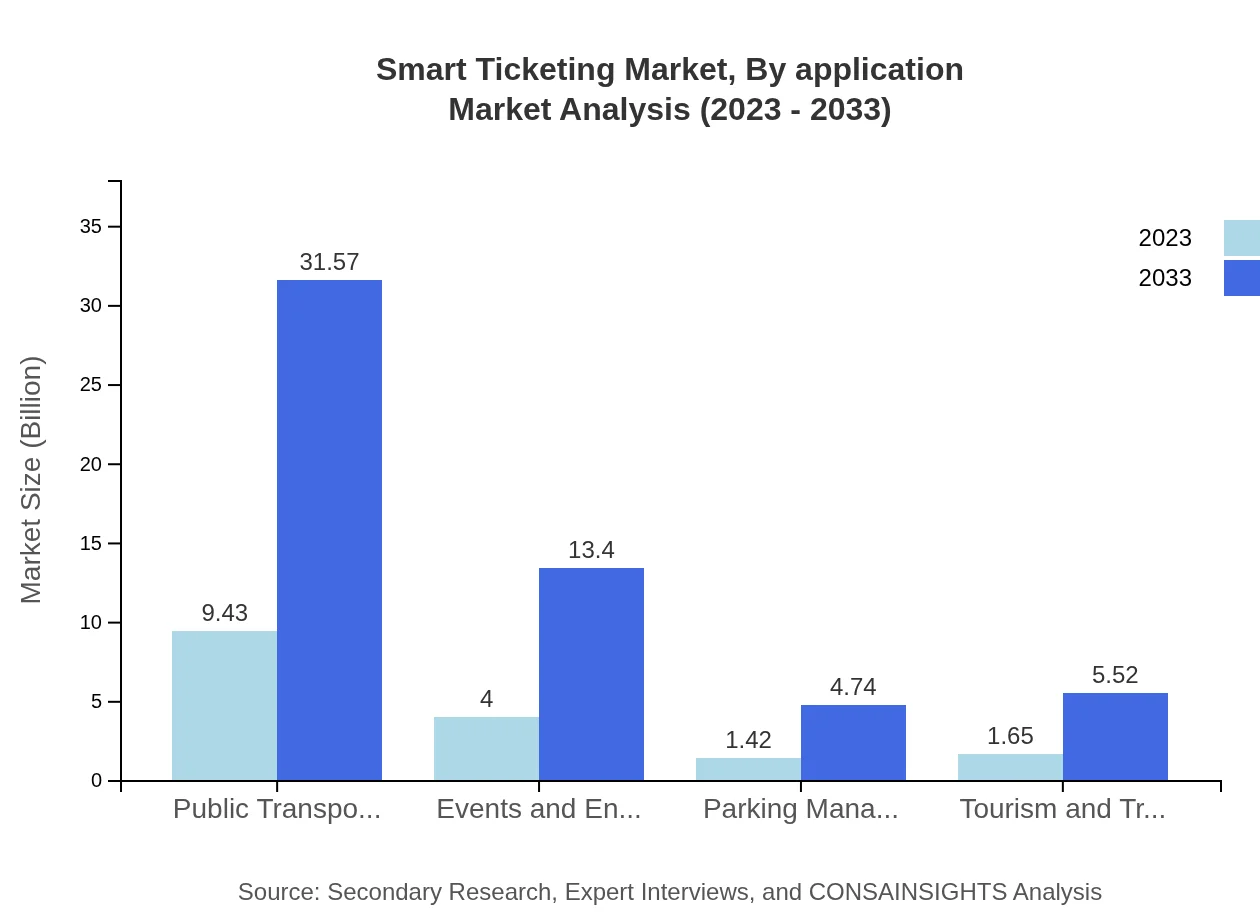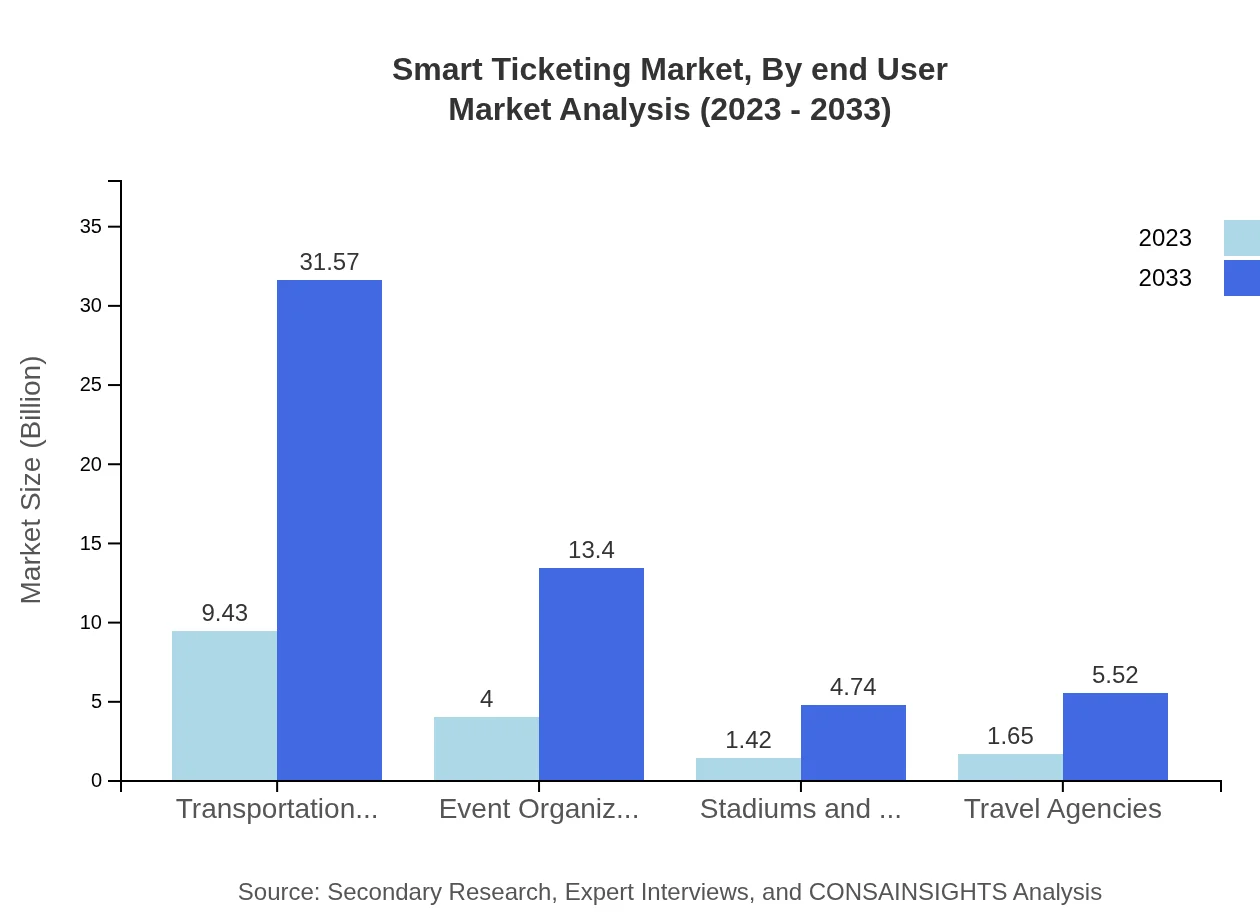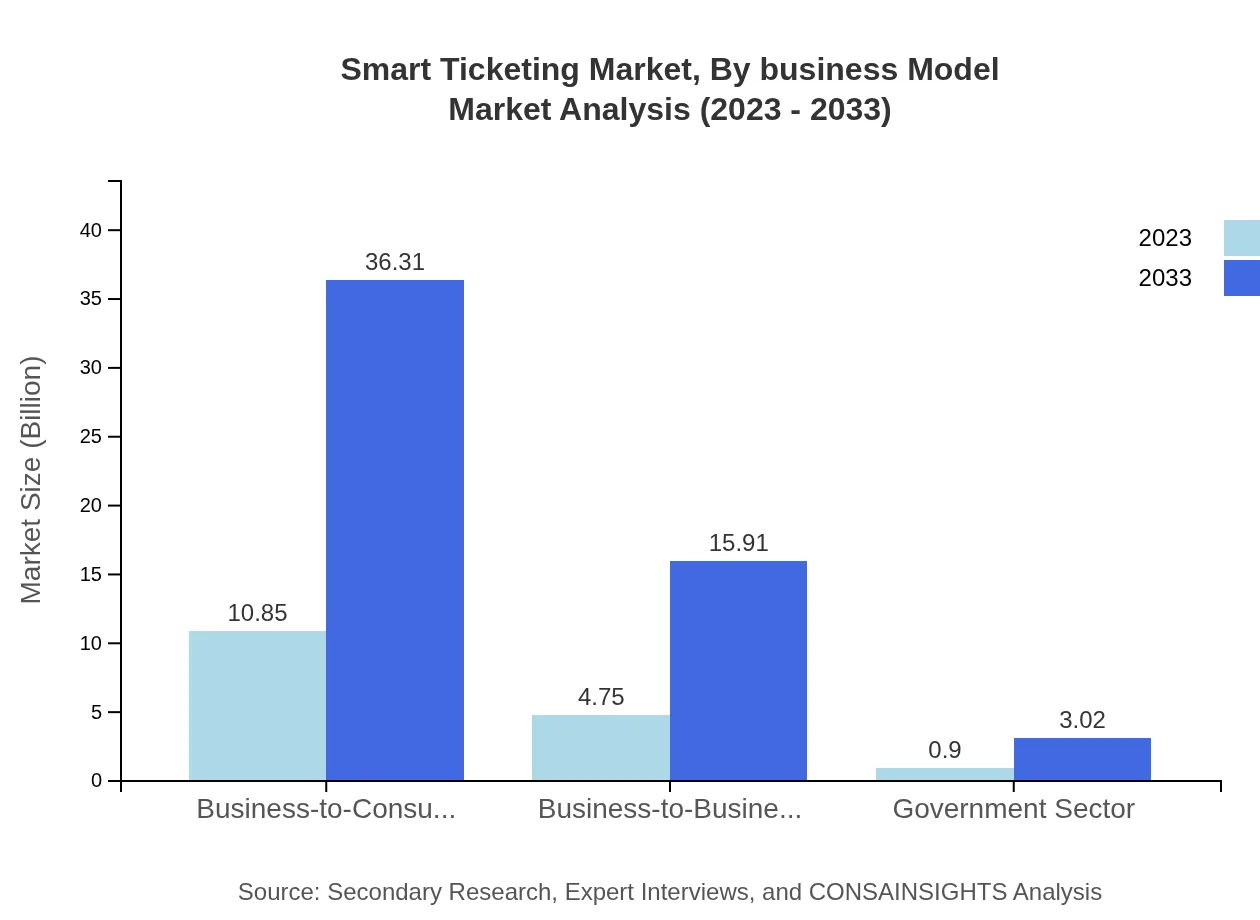Smart Ticketing Market Report
Published Date: 02 February 2026 | Report Code: smart-ticketing
Smart Ticketing Market Size, Share, Industry Trends and Forecast to 2033
This report encompasses a comprehensive analysis of the Smart Ticketing market, delivering insights on market size, growth forecasts (2023 - 2033), key trends, technological innovations, and regional analyses.
| Metric | Value |
|---|---|
| Study Period | 2023 - 2033 |
| 2023 Market Size | $16.50 Billion |
| CAGR (2023-2033) | 12.3% |
| 2033 Market Size | $55.24 Billion |
| Top Companies | Thales Group, Cubic Corporation, Conduent Inc., OmniTicket Network |
| Last Modified Date | 02 February 2026 |
Smart Ticketing Market Overview
Customize Smart Ticketing Market Report market research report
- ✔ Get in-depth analysis of Smart Ticketing market size, growth, and forecasts.
- ✔ Understand Smart Ticketing's regional dynamics and industry-specific trends.
- ✔ Identify potential applications, end-user demand, and growth segments in Smart Ticketing
What is the Market Size & CAGR of Smart Ticketing market in 2023?
Smart Ticketing Industry Analysis
Smart Ticketing Market Segmentation and Scope
Tell us your focus area and get a customized research report.
Smart Ticketing Market Analysis Report by Region
Europe Smart Ticketing Market Report:
In Europe, the market is expected to grow from $4.17 billion in 2023 to $13.97 billion by 2033. The drive towards contactless transactions, especially post-pandemic, and government initiatives in smart city development fuel this growth.Asia Pacific Smart Ticketing Market Report:
In 2023, the Smart Ticketing market in the Asia Pacific region is valued at $3.41 billion and is anticipated to reach $11.40 billion by 2033. The region experiences rapid urbanization and a growing middle class, driving demand for efficient public transport solutions.North America Smart Ticketing Market Report:
The North American Smart Ticketing market is valued at $6.13 billion in 2023, projected to escalate to $20.52 billion by 2033. The region's advanced technological landscape and high smartphone penetration enhance the adoption of smart ticketing solutions.South America Smart Ticketing Market Report:
The South American market size in 2023 is reported at $1.24 billion with expectations to grow to $4.14 billion by 2033. The market benefits from rising investments in smart city initiatives and improved public transport infrastructure.Middle East & Africa Smart Ticketing Market Report:
The Middle East and Africa market is valued at $1.55 billion in 2023 and is projected to reach $5.20 billion by 2033. Increased investment in urban infrastructure and the burgeoning demand for integrated public transport solutions contribute to market expansion.Tell us your focus area and get a customized research report.
Smart Ticketing Market Analysis By Technology
Mobile ticketing emerges as the leading technology segment, with a market size of $10.85 billion in 2023, projected to scale up to $36.31 billion by 2033, accounting for 65.74% of market share. This is followed by contactless ticketing, set to grow from $4.75 billion in 2023 to $15.91 billion by 2033, capturing a market share of 28.8%.
Smart Ticketing Market Analysis By Application
Public transportation dominates the application segment, valued at $9.43 billion in 2023, on course to reach $31.57 billion by 2033, with a 57.15% market share. Events and entertainment is also significant, with a market size of $4.00 billion expected to grow to $13.40 billion.
Smart Ticketing Market Analysis By End User
B2C represents a significant share of the end-user market with a size of $10.85 billion in 2023, projected to grow to $36.31 billion by 2033. The government sector denotes a rising interest with a market size of $0.90 billion, anticipated to reach $3.02 billion.
Smart Ticketing Market Analysis By Business Model
The market’s B2B application demonstrates steady growth, with the size anticipated to rise from $4.75 billion in 2023 to $15.91 billion by 2033, while B2C models will maintain a substantial share through continuous enhance user experience.
Smart Ticketing Market Trends and Future Forecast
Tell us your focus area and get a customized research report.
Global Market Leaders and Top Companies in Smart Ticketing Industry
Thales Group:
A global technology leader in providing solutions for ticketing and transit, Thales develops integrated systems for public transport operators to enhance operational efficiency.Cubic Corporation:
Cubic Corporation specializes in providing smart transportation systems, focusing on high-tech ticketing solutions that ensure user convenience and security.Conduent Inc.:
Conduent is a leading provider of technology solutions for ticketing and mobility, offering customized smart ticketing solutions tailored to various transportation modes.OmniTicket Network:
OmniTicket is a reputable player in the ticketing domain, providing comprehensive cloud-based solutions that streamline the ticketing process for clients across multiple industries.We're grateful to work with incredible clients.









FAQs
What is the market size of smart Ticketing?
The smart-ticketing market is valued at approximately $16.5 billion in 2023, with a projected CAGR of 12.3% through 2033. This robust growth reflects the sector's expanding role in streamlined travel and event management.
What are the key market players or companies in the smart Ticketing industry?
Key players in the smart-ticketing industry include major companies focused on technology integration and ticketing solutions, though specific names weren't provided. Their innovations are essential for developing efficient ticketing systems globally.
What are the primary factors driving the growth in the smart ticketing industry?
Growth in the smart-ticketing industry is driven by increased urbanization, the proliferation of mobile devices, and rising demand for seamless travel experiences. These factors highlight the sector's importance in modern transport and event management.
Which region is the fastest Growing in the smart ticketing?
North America is the fastest-growing region in smart ticketing, with a market expected to reach $20.52 billion by 2033, up from $6.13 billion in 2023. Europe and Asia Pacific also exhibit strong growth potential.
Does ConsaInsights provide customized market report data for the smart ticketing industry?
Yes, ConsaInsights offers customized market report data tailored to specific needs in the smart-ticketing industry, ensuring clients receive relevant and actionable insights that align with their strategic objectives.
What deliverables can I expect from this smart Ticketing market research project?
Deliverables from this market research project may include comprehensive reports, trend analyses, competitive landscapes, and forecasts across critical segments, providing stakeholders with valuable insights for strategic decision-making.
What are the market trends of smart ticketing?
Current market trends in smart ticketing include the rising adoption of mobile and contactless ticketing solutions. Innovations in technology are enhancing user experience, while sustainability concerns drive investment in digital ticketing solutions.

